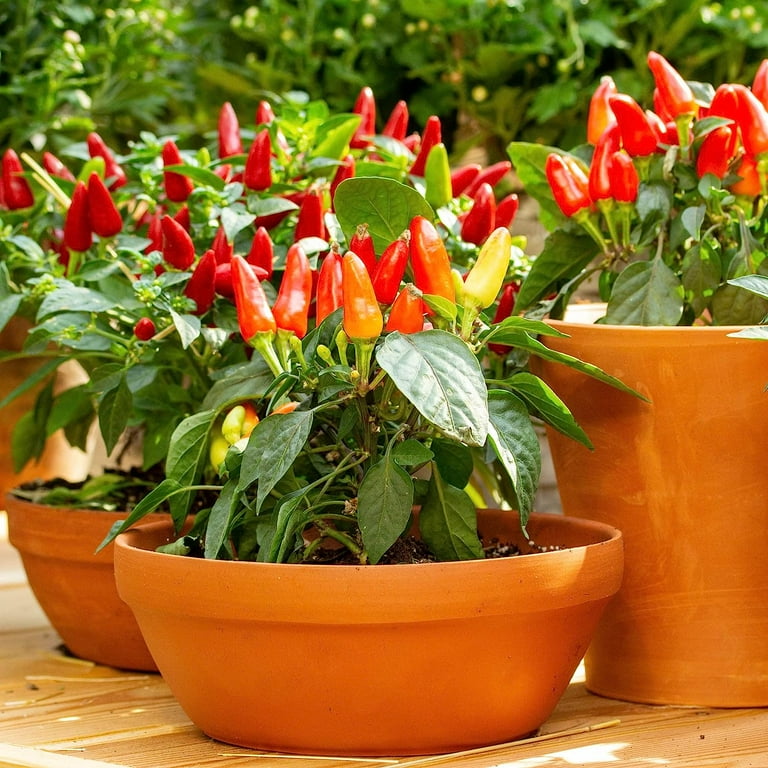Best Fertilizers for Peppers: Boost Development and Taste Naturally
Best Fertilizers for Peppers: Boost Development and Taste Naturally
Blog Article
Organic Vs. Synthetic Fertilizers: Which Is Best for Nurturing Healthy And Balanced Pepper Plants?
In the world of supporting healthy pepper plants, the selection in between synthetic and natural plant foods stands as an essential decision with far-reaching effects. While both choices purpose to supply important nutrients to support plant development, the nuances of their influence on the dirt, plant health and wellness, and the environment trigger an argument that mirrors throughout the horticulture community. Recognizing the unique advantages and potential challenges of each plant food type is vital for pepper farmers looking for to enhance their returns while preserving a sustainable and eco-conscious strategy.
Advantages of Organic Fertilizers
Organic plant foods use a sustainable and environmentally-friendly technique to nourishing pepper plants, giving crucial nutrients without using synthetic chemicals. These all-natural fertilizers are originated from natural sources such as garden compost, manure, bone meal, and algae, promoting soil wellness and biodiversity. Unlike synthetic plant foods, organic choices release nutrients slowly, ensuring a constant and balanced supply for pepper plants to flourish.
One substantial benefit of organic plant foods is their ability to enhance dirt framework and water retention. By enhancing dirt wellness, organic fertilizers advertise advantageous microbial activity, which assists in nutrient uptake by pepper plants. Additionally, organic plant foods lower the risk of chemical run-off, securing water resources from pollution and securing the setting.
Furthermore, organic plant foods add to lasting soil fertility by promoting the growth of helpful dirt organisms. These organisms help break down natural issue, releasing nutrients in a form that is easily available to pepper plants. best fertilizers for peppers. By promoting a healthy and balanced dirt ecological community, organic fertilizers support sustainable pepper cultivation practices that benefit both plants and the atmosphere
Disadvantages of Synthetic Fertilizers
Synthetic fertilizers, unlike their natural equivalents, present various downsides when made use of to nurture pepper plants, impacting both plant health and ecological sustainability. One major drawback of synthetic plant foods is their propensity to seep nutrients from the dirt swiftly. This fast leaching can result in nutrition discrepancies in the soil, causing plants to experience toxicities or deficiencies. Additionally, artificial plant foods can hurt valuable dirt organisms, such as earthworms and useful bacteria, disrupting the dirt environment's balance.
Moreover, the overuse of artificial fertilizers can add to water contamination. Excess fertilizers not soaked up by plants can clean away into water bodies, bring about eutrophication, where algae flowers deplete oxygen degrees in the water, hurting marine life. Moreover, synthetic plant foods are usually derived from non-renewable sources, such as fossil fuels, adding to carbon discharges and environmental deterioration during their manufacturing.
Nutrient Absorption Comparison
Reliable nutrient absorption plays an important duty in the overall health and wellness and development of pepper plants. When comparing natural and synthetic plant foods in terms of nutrient absorption, natural plant foods have the advantage of supplying an extra balanced and slow-release source of nutrients (best he has a good point fertilizers for peppers). Organic plant foods contain a range of macro and trace elements that are not just helpful for the plants but also promote healthy and balanced dirt microbial activity, which aids in nutrient uptake. On the other hand, artificial plant foods often offer a fast launch of nutrients, which can lead to leaching and overflow, leading to reduced nutrient absorption prices by the plants.
Additionally, organic fertilizers boost dirt framework and water retention capacity, permitting pepper plants to accessibility nutrients more efficiently. This improved soil quality facilitates root development, enabling better nutrient absorption. Artificial plant foods, although at first improving plant growth due to their high nutrient concentrations, might impede long-term nutrient absorption by derogatory dirt Resources health and wellness over time.
Ecological Influence Considerations

On the various other hand, synthetic plant foods, although usually more concentrated and quickly offered to plants, can have harmful effects on the atmosphere if not used appropriately (best fertilizers for peppers). Their production calls for high energy inputs, causing greenhouse gas emissions and adding to climate adjustment. Furthermore, the runoff of excess artificial plant foods can pollute water resources, resulting in eutrophication and damaging aquatic ecosystems.
Ideal Plant Food Practices for Peppers
When fertilizing pepper plants, maximizing nutrient uptake and minimizing environmental influence are key considerations. To attain this, it is necessary to follow ideal fertilizer practices tailored to the particular requirements of pepper plants. One critical technique is to perform a soil test before applying any fertilizers. This test can identify the pH degree of the soil and determine any type of nutrient shortages, assisting you in picking one of the most ideal plant food formula.
One more essential practice is to fertilize pepper plants at the correct time. Typically, peppers benefit from obtaining plant food at planting and afterwards again when they start to blossom. Over-fertilizing can cause nutrient imbalances and damage the plants, so it is crucial to comply with recommended application prices.
In addition, selecting a well balanced fertilizer with an NPK proportion that fits pepper plants' needs is essential. Inevitably, integrating artificial and organic fertilizers deliberately can assist support healthy pepper plants while lessening ecological impact.
Verdict

Organic fertilizers supply an environmentally-friendly and sustainable strategy to nourishing pepper plants, offering crucial nutrients without the use of synthetic chemicals. Unlike artificial plant foods, natural options release nutrients gradually, ensuring a well balanced and constant supply for pepper plants to thrive.
Synthetic plant foods, in comparison to their natural equivalents, pose various downsides when made use of this to nurture pepper plants, impacting both plant health and environmental sustainability. When comparing natural and artificial plant foods in terms of nutrient absorption, natural fertilizers have the advantage of providing a more balanced and slow-release source of nutrients.Additionally, organic fertilizers improve soil structure and water retention capability, enabling pepper plants to gain access to nutrients a lot more successfully.
Report this page